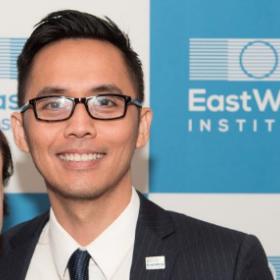
Afghan Narcotrafficking: Finding an Alternative to Alternative Development
The EastWest Institute (EWI) has released a new report titled Afghan Narcotrafficking: Finding an Alternative to Alternative Development, the fourth in a six-part series showing that efforts to reframe the debate on and practice of conducting development in drug-crop-growing areas of Afghanistan have not been successful.
This report pinpoints the critical shortcomings of Alternative Development and sets forth recommendations for future practices of conducting development in the Afghan drug environment.
The report was a collaborative result of EWI’s Joint Working Group of Russian and U.S. experts, many of whom undertook extensive field-work and analysis in Afghanistan and the surrounding region over the last several years. The working group was established in 2011 and represents a key area of cooperation between the two countries on an issue of shared interest, and during a weakening U.S.-Russia bilateral relationship.
Key findings:
- Despite the best of intentions, the international development donor community is coming up short in countering the growth of opium poppy cultivation in Afghanistan—neither making the best use of funds, nor delivering on development outcomes or counternarcotics objectives.
- Alternative Development programs designed to encourage farmers in Afghanistan to switch from opium poppy cultivation have a questionable track record of success—only proving effective in select areas, and failing to engage with the wider development policy debates and processes.
- The authors conclude that “counternarcotics mainstreaming” is the optimal strategy going forward. This approach underlines the multi-layered role opium production plays in rural livelihoods in the context of rural development, while also recognizing that efforts in Afghanistan need to address the wider political economy (improvements in security, governance and diversification) integrated across national development policy.
- The report also calls on the United States and Russia to jointly and individually press the Government of the Islamic Republic of Afghanistan to factor the drugs issue into national development planning, as well as advocacy efforts with international organizations, such as the UNDP and the World Bank, that can play an increasingly influential role.
Background:
EWI’s Joint U.S.-Russia Working Group previously has released three reports: Afghan Narcotrafficking: A Joint Threat Assessment in 2013; Afghan Narcotrafficking: Post-2014 Scenarios in 2015; and Afghan Narcotrafficking: The State of Afghanistan's Borders in 2015. Two more reports will follow, one focused on narco-financing and a final report presenting a compendium of all recommendations.
The executive summary and full report are available here.
The official press release is available here.


